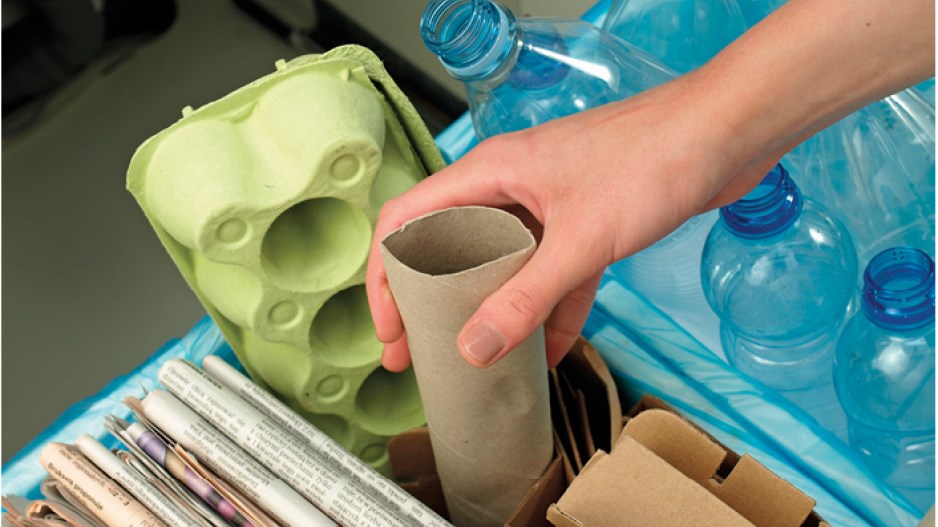The provincial government is trying to fix something that isn't broken - and it's making a mess in the process.
Cities and towns in British Columbia have successful recycling systems in place, but the province has thrown everything into confusion by mandating creation of a monster called Multi-Material BC. Since MMBC began ramping up, one protest has followed another, as municipalities and businesses began to realize the effects it would have on them. Premier Christy Clark has called the creation of the new organization a "bumpy road."
Business groups across the province have allied under the banner Rethink It BC, to demand the government delay implementation and sit down to talk about changes to the new entity.
MMBC was created after the government changed the provincial recycling regulations in 2011 so that responsibility for recycling packaging and printed paper moved from municipalities to the industries that produced the material.
The theory is that the companies that profit from products that produce waste should have to pay the cost of recycling that material.
Proponents say the added cost will also be an incentive for those companies to reduce the amount of packaging they use, as not producing waste is a better solution than recycling it after it is produced.
B.C. picked MMBC as the organization to manage the new program, beginning May 19. It will be funded by fees collected from companies that use packaging or create printed paper, instead of being funded by municipalities.
Lana Popham, Saanich South New Democrat MLA, recently said: "They are setting up a system that's dangerously close to a monopoly. This will inevitably lead to a decrease in quality of services and increase in price."
This is a B.C. initiative, but it is being run by a board of directors representing Unilever Canada, Walmart, Tim Hortons, Loblaws, Coca-Cola and Procter & Gamble.
Does anyone expect them to put B.C.'s interests first? The province has already responded to the horrified outcry from small businesses and exempted them from paying fees to MMBC if their revenues are below $1 million a year, they produce less than a tonne of packaging each year or they are single outlets.
That excludes the majority of businesses, but means the remaining ones - and their customers - will have to foot the bill for everyone's recycling.
MMBC's fees will be much higher than those in other regions. For instance, newspapers would have to pay 20 cents per kilogram, compared to 0.42 cents in Ontario. Corrugated cardboard would be charged 29 cents per kilogram, compared with 8.4 cents in Ontario.
The organization says the higher fees are because MMBC will serve apartment buildings, while Ontario's program serves only houses, but the cost differential is still excessive.
Newsprint is already the most successfully recycled product in the system. About 85% of all newspaper in B.C. is recycled, and municipalities generate revenue from it because it is the most valuable recycled material.
Newspapers are among the industries most worried about the new system. Peter Kvarnstrom, chairman of the Canadian Newspaper Association, warned that the added costs are so significant to an industry that is already fragile that they will force layoffs in newsrooms across the province.
B.C.-based magazines will be penalized because they will have to pay for recycling, while international publications that are printed elsewhere and shipped to the province pay nothing. In essence, a B.C. magazine will be subsidizing Vanity Fair.
Everyone, including the critics of MMBC, can get behind the idea of reducing waste. But the province needs to listen to Rethink It BC's call for solutions to very serious concerns.
http://www.thenownewspaper.com




